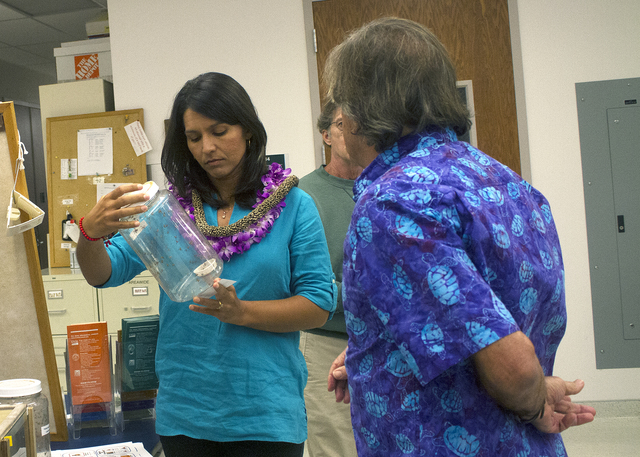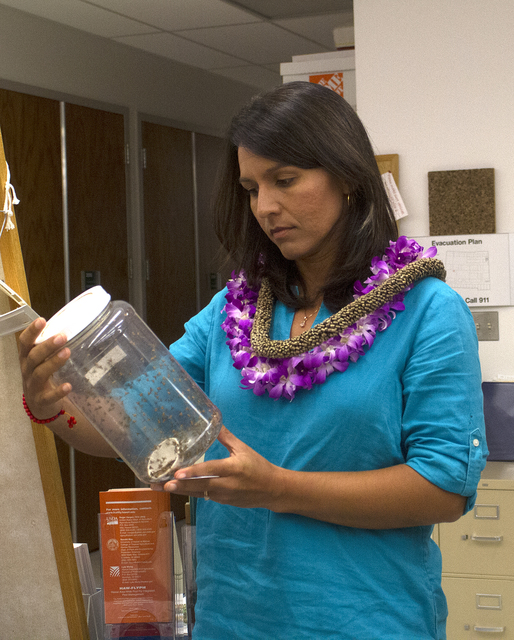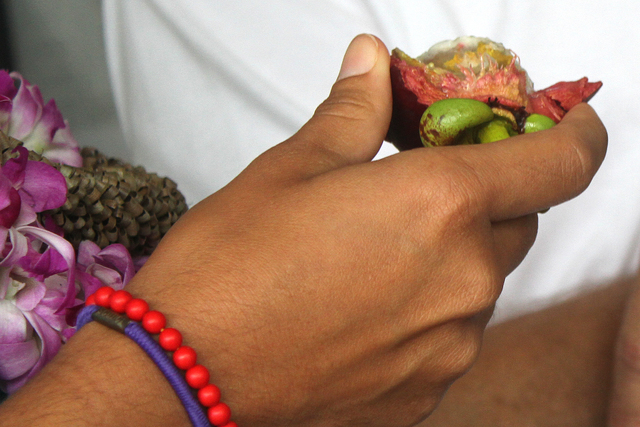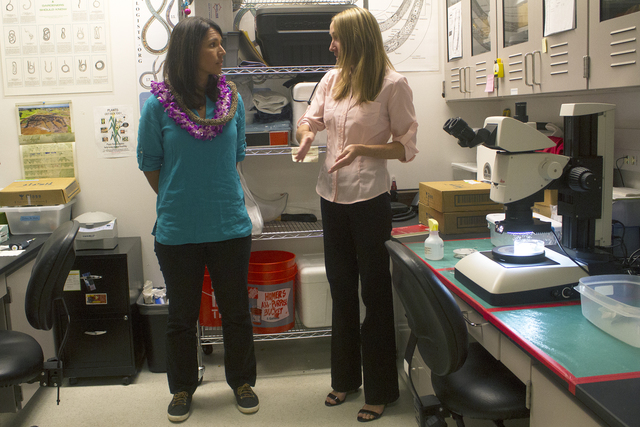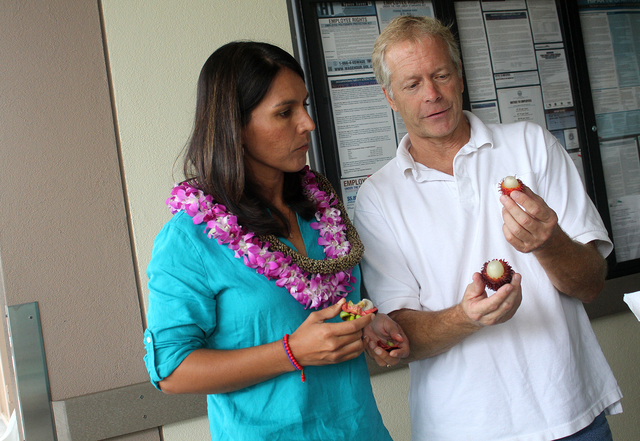Hawaii Rep. Tulsi Gabbard visited three East Hawaii farms and met with agriculture researchers Monday as part of a statewide tour during Congress’ summer recess.
Morning sessions at the Komohana Research Extension Center and the Pacific Basin Agricultural Research Center focused on current key crops such as coffee, future prospects such as breadfruit and the ongoing fight against Hawaii’s numerous invasive species, particularly the coffee berry borer and the fungus that causes rapid ohia death.
“Invasive species are extremely costly around the country,” Gabbard told a group of extension agents and researchers from the University of Hawaii at Manoa’s College of Tropical Agriculture and Human Resources after all gave brief overviews of their projects. “Hawaii’s on the front lines of this fight.”
Last year, Gabbard introduced legislation that would create an Area-Wide Integrated Pest Management system. Integrated pest management focuses on long-term solutions and prevention, typically through biological control or habitat management, as opposed to short-term solutions such as pesticide.
“That helps to deal with a whole variety of the invasive species,” Gabbard told the Tribune-Herald. “What we’ve found is coffee berry borer is obviously still an issue, but it feels like every year there’s a new invasive species that’s affecting (Hawaii), whether it’s macadamia nuts or coffee or ohia.”
The AIPM act was introduced to ensure support for “sustainable, natural solutions to a lot of these different pests, that local farmers can access,” Gabbard said.
Representatives from Maine, California and Puerto Rico joined Gabbard in introducing the bill. All are Democrats.
The bill was referred to the House Subcommittee on Biotechnology, Horticulture and Research. In February, Gabbard encouraged more members of the House to cosponsor and pass the measure.
“We’ve been trying to find Republican colleagues whose districts are affected by invasives,” Gabbard said.
Florida and California face many of the same problems as Hawaii.
Gabbard said her No. 1 priority after returning from recess is voting for passage of a bill to fund the government for another year. For the past four years, while the bill has been passed, it funded government at the same levels as the previous sessions.
“The problem with passing continued resolutions is it doesn’t allow for funding more programs,” Gabbard said.
That makes it difficult for researchers, she said, because they don’t know how stable their funding is or whether they can begin new work.
“This is directly related to (agriculture), but generally speaking, unfortunately a lot of folks don’t give much thought as to what’s happening out in Hawaii, which is the foremost job I and (other Hawaii representatives) have … to make sure they understand the unique environment, culture, agriculture, economy, et cetera, that we have here.”
Gabbard later visited Akatsuka Orchid Gardens, Matsui Farm and the Ka‘u Coffee Mill. She also hosted a “Tulsi in Your Town” meeting in Pahala, speaking with Ka‘u residents. Similar talk-story sessions were hosted in Wahiawa, Oahu; Lihue, Kauai; and Kailua-Kona.
Email Ivy Ashe at iashe@hawaiitribune-herald.com.






